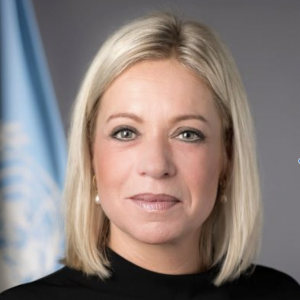I wish to express my gratitude and deep appreciation to all Iraqis, in particular those I have met and worked with.
Over the past five years, I was repeatedly touched by the generosity and hospitality of a people who never departed from their tradition of welcoming an outsider or assisting those in need, even if at the expense of their own comfort or time. I learned much from listening to Iraqi women and men explaining their history with pride. Though many faced down serious challenges, an optimism for the days ahead often shone through. They welcomed me and other UN colleagues into their towns and homes, inviting us to join for a meal or an event and never passing up an opportunity to showcase Iraq’s rich culture and immense beauty. Throughout the country, including the Kurdistan Region, countless people of all ages spontaneously shared, time and again, their hopes and aspirations. And I will forget none of them.
I also truly valued the professional meetings and discussions we had with a wide spectrum of partners. From civil society representatives, academics, tribal chiefs and religious leaders to local, provincial and national authorities, judges, security officials and politicians. Needless to say, their insights and perspectives taught us a great deal and guided our work. Some of these meetings involved individuals putting everyday differences aside to find solutions at critical junctures for Iraq. All such engagement left an indelible impression on me. And, of course, I cannot overstate our gratitude to the many branches of Iraq’s government, which, through relentless efforts, facilitated our work and protected UN personnel and operations.
None of this is to say that the UN has been immune to criticism - some of which was justified, some simply based on wrong perceptions about who we are, and what we can and cannot do. But talking to those who understood the values of the Organization, and what it stands for, was most rewarding. As I have said many times, the UN does not have a magic wand. At the end of the day, the balance between conflict and peace, or poverty and prosperity, hinges on the political will of states. But if we can make a difference in the lives of people, it is worth stepping up and continuing to try. Ultimately, the UN has one main priority at its core: advancing peace and prosperity for all - no matter affiliation, faith, background or ethnicity.
Again, I wish to extend my deep appreciation and thanks for the kind cooperation and support shown to UNAMI, the broader UN family in Iraq and to me personally.
Long Live Iraq



